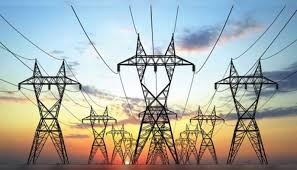
Oil production: NUPRC orders players to supply crude to local refineries by June
The Nigeria Upstream Petroleum Regulatory Council (NUPRC) has ordered players to supply around 483,000 barrels per day (bpd) of crude oil to local refineries for the first six months of 2024.
This directive is issued by the Nigeria Upstream Regulatory Commission (NUPRC) as part of the country’s efforts to ensure a stable supply for domestic refining.
Among the local refineries expected to commence operations in 2024 are the Dangote oil refinery and at least three government-run refineries.
As outlined in the recently published Domestic Crude Supply Obligation guidelines by the Nigerian Upstream Petroleum Regulatory Commission (NUPRC), the 650,000-barrel-per-day Dangote refinery is set to receive the largest share, with a volume of 325,000 bpd.
Data from the Nigeria Upstream Petroleum Regulatory Council (NUPRC) indicates that six refineries, collectively boasting a refining capacity of 864,500 barrels per day (bpd), are anticipated to become operational starting in 2024. Consequently, oil producers will need to provide slightly more than half of the crude requirements to meet these refining capacities.
Additional refineries slated to benefit from the crude oil supply include the Warri and Port-Harcourt refineries, anticipated to receive 75,000 and 54,000 barrels of crude oil daily, respectively. Meanwhile, refineries such as Waltersmith, OPAC, and Niger Delta Petroleum Refinery among others, are set to receive 10,000 bpd and below.
The Petroleum Industry Act (PIA) enacted in 2021 introduced a provision mandating oil producers in Nigeria to allocate a portion of their crude to domestic refineries to prevent them from facing shortages. However, as of now, this regulation has not been implemented.
Nigeria has been seeking to end the importation of petroleum products and keep prices relatively low after the removal of the fuel subsidy in June. The price of fuel spiked by over 200 percent after the removal of the subsidy in June.
Although the CEO of the NNPCL stated in an interview in June that local refining will not significantly reduce the price of fuel across the country post-subsidy. He specifically stated the reduction will be in the range of N20 to N30 from the imported fuel.
Since 2021, the country has engaged foreign contractors in the rehabilitation of its state-owned refineries and supported the private sector in building others. The Dangote refinery was commissioned in May but is yet to begin refining after receiving crude earlier this month. Also, the turnaround maintenance of the old Port-Harcourt refinery has been completed and will begin refining 60,000 barrels of oil daily from January 2024.



